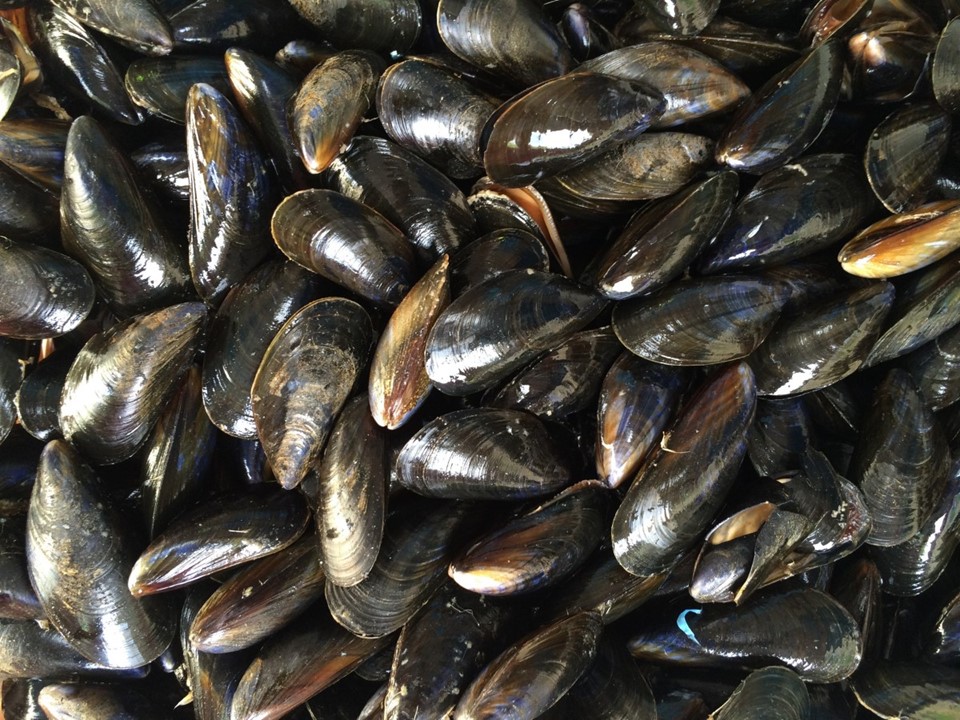The cultivation of mussels in Belgian offshore wind farms is both biologically and technically feasible, according to research carried out by our scientists and their partners within the Edulis project. The economic feasibility depends on solving technical challenges.
After two years of experimentation and research, scientists and private companies present the results of the research project ‘Edulis: offshore mussel culture in wind farms‘, which looked at the possibilities for mussel farming in offshore wind farms 30 to 50 km off the Belgian coast. Edulis is a collaboration between Ghent University, the Research Institute for Agriculture, Fisheries and Food (ILVO), RBINS/OD Nature and 5 private partners (Belwind, Brevisco, C-Power, Colruyt Group and DEME Group). The ambitious pilot project is largely financed by private funding and facilitated by Flemish and European funding.

Quality Mussels
The project has demonstrated that it is both biologically and technically possible to cultivate mussels in the Belgian offshore wind farms, which means that these can serve more than one purpose at a time. The experiments resulted in a tasty quality mussel that is well stocked and meets all food safety requirements. The yield is equivalent to that of hanging mussels from the Netherlands and Ireland, and the mussels grow faster than mussels from bottom cultivation (mussels ready for market in 15 months instead of 24 months).
Technical Challenges
The big challenge is designing installations that can withstand the sometimes extreme North Sea environment. Investing in robust, easy to maintain and safe systems, including vessels, is a must, according to the researchers, although this will push up overall production costs. In addition, it turned out that the sizing and organisation of the wind farms is not optimal for food production, which is logical as they were not designed for that purpose. The distance from the coast also poses a challenge to technical, practical and economic feasibility. When designing future wind farms, this should be taken into account in order to be able to combine both activities.
Economic Feasibility
“Edulis has given us a clear picture of the costs and benefits of mussel farming in the North Sea” says Margriet Drouillon, Senior Business Developer Aquaculture and Blue Life Sciences at Ghent University. “If we really want mussel farming on a commercial scale, we will have to put a lot of effort into developing knowledge about the economic feasibility of mussel farming in the wind farms. We will also explore other paths for multiple use of space at sea, with due attention to sustainable production”.
Three Additional Challenges for Aquaculture in the North Sea
Ghent University and the Research Institute for Agriculture, Fisheries and Food (ILVO) launched the ‘North Sea Aquaculture’ project in 2017, with Edulis and Value@Sea as subsidiary projects. They joined forces with their partners RBINS/OD Nature, Belwind, Brevisco, C-Power, Colruyt Group, DEME Group, Lobster Fish, and Sioen Industries. North Sea Aquaculture tackled three challenges:
- Innovative shellfish and seaweed farming techniques;
- Efficient use of space in the Belgian North Sea;
- The development of a market for new regional marine products.
More info on Edulis:
Margriet Drouillon, UGent, 0484 13 95 39, margriet.drouillon@ugent.be
